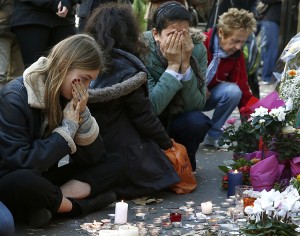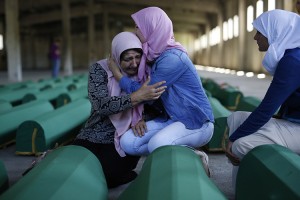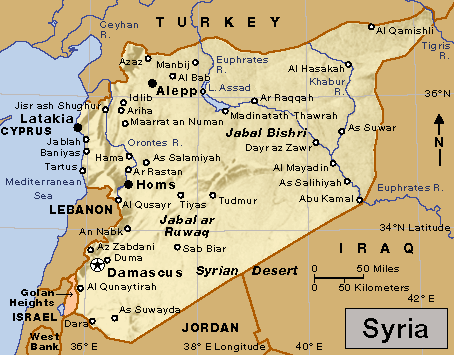Terror Returns to Paris
Monday, November 16th, 2015November 16, 2015

Mourners pay their respects at one of the attack sites in Paris, November 15, 2015. Credit: © Benoit Tessier, Reuters/Landov
Last Friday night, November 13, Paris was rocked by a series of coordinated terrorist attacks that left more than 129 civilians and 7 terrorists dead. Hundreds of civilians were wounded, some very seriously. French President François Hollande called the attacks an “act of war.” The Islamic State, or ISIS, took responsibility for the massacre. President Hollande closed the borders to France and issued a curfew for Paris and a state of emergency for the entire nation.
The attacks began when one bomb was detonated outside the Stade de France, the national sports stadium, just north of the city limits of Paris. A soccer game was in progress between Germany and France, with 80,000 people at the stadium at the time, including President Hollande. The president and other fans were safely evacuated. About 5 minutes after the first attack, gunmen opened fire on patrons at a bar and a restaurant, both near the Place de la Republique. Soon after, the deadliest attack of the night took place at the Bataclan theater—a beautiful building dating to 1865 with a Chinese-style facade (front). The theater, just east of the Bastille, was holding a sold-out concert by an American rock band, the Eagles of Death Metal. Terrorists entered the theater and began shooting AK-47 assault rifles into the crowd of some 1,500 people. The terrorists then gathered up some 100 people to hold as hostages. French security forces stormed the Bataclan soon after, but the terrorists detonated explosive vests, killing themselves and 8 hostages. Eighty-nine people died at the Bataclan.
The Paris attacks came after two earlier attacks by the Islamic State in as many weeks, causing experts to fear that the group’s coordinated influence is spreading. On October 31, a Russian airliner crashed in Egypt, killing all 224 people aboard. (On November 16, Russia confirmed that the plane was brought down by a bomb planted in the plane’s cargo hold.) Russia had recently entered the fight in the Syrian civil war against both rebel groups and the Islamic State, which claimed responsibility for the crash. On November 12, Islamic State bombings in Beirut, Lebanon, killed more than 40 people. The bombs were set off in a Hezbollah stronghold; the group has been fighting in the Syrian civil war on the side of Syrian President Bashar al-Assad and against the Islamic State. France has been active in the fight against the Islamic State as well.
Paris had been on high alert since January 2015, when Islamist gunmen attacked the Paris offices of the satirical magazine Charlie Hebdo. Eleven people in the building were killed. The attacks took place over three days and resulted in the deaths of 20 people in total. Millions of people in France demonstrated to show solidarity for free speech. France then deployed thousands of soldiers around the nation to safeguard against further attacks. In August, an attack on a high-speed train from Amsterdam to Paris was thwarted by tourists who stopped a would-be terrorist with an AK-47 rifle.
On Saturday, November 14, police in Belgium stopped a car that had been used in the most recent attacks in Paris, leading to raids and arrests in Belgium as police searched for accomplices. A manhunt for more attackers was also underway in France. On Sunday, French warplanes launched air strikes in retaliation on the Syrian city of Ar Raqqah, the Islamic State’s de facto capital. The French strikes were reported to have hit a command center, a training facility, and an arms depot all belonging to the terrorist group.




